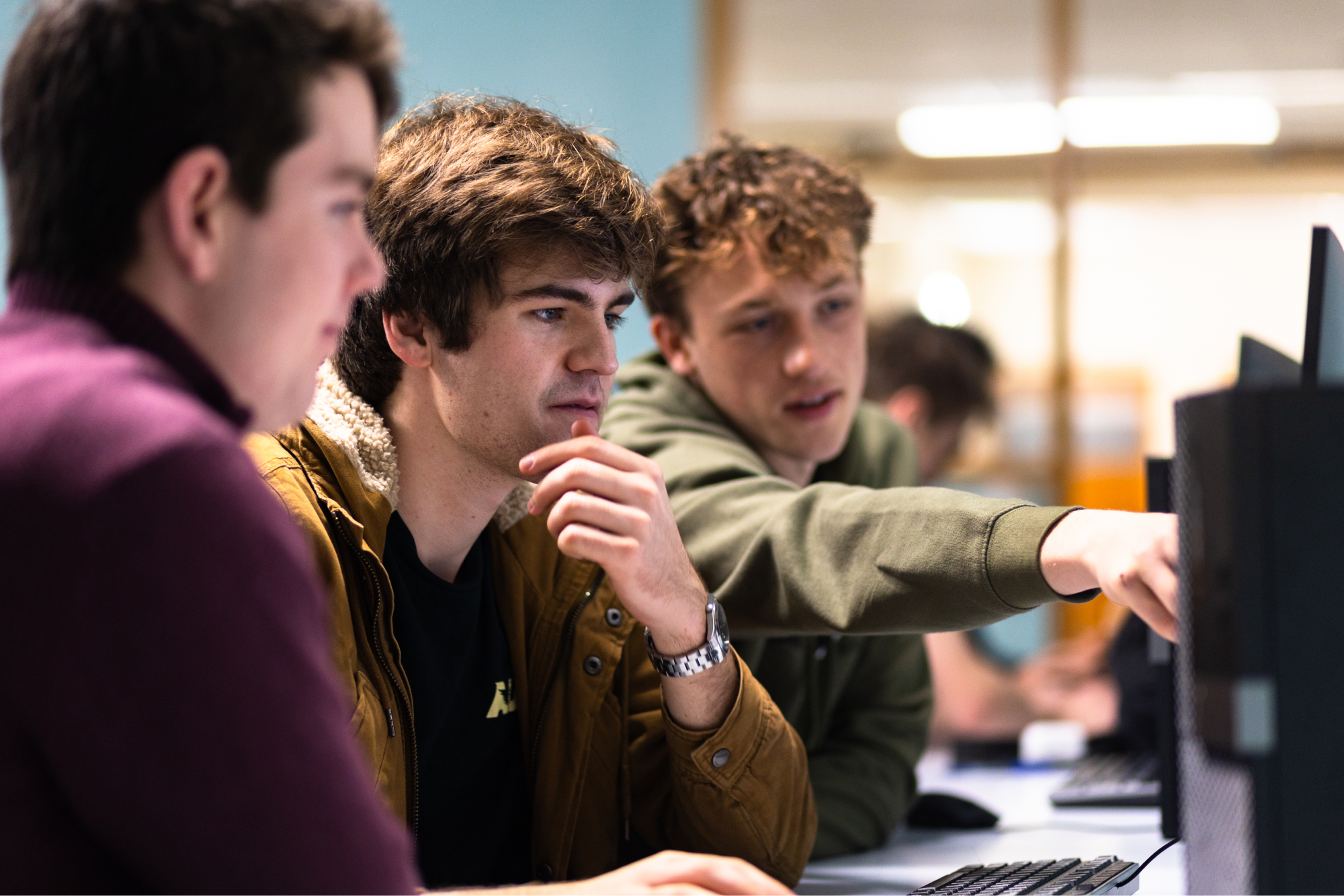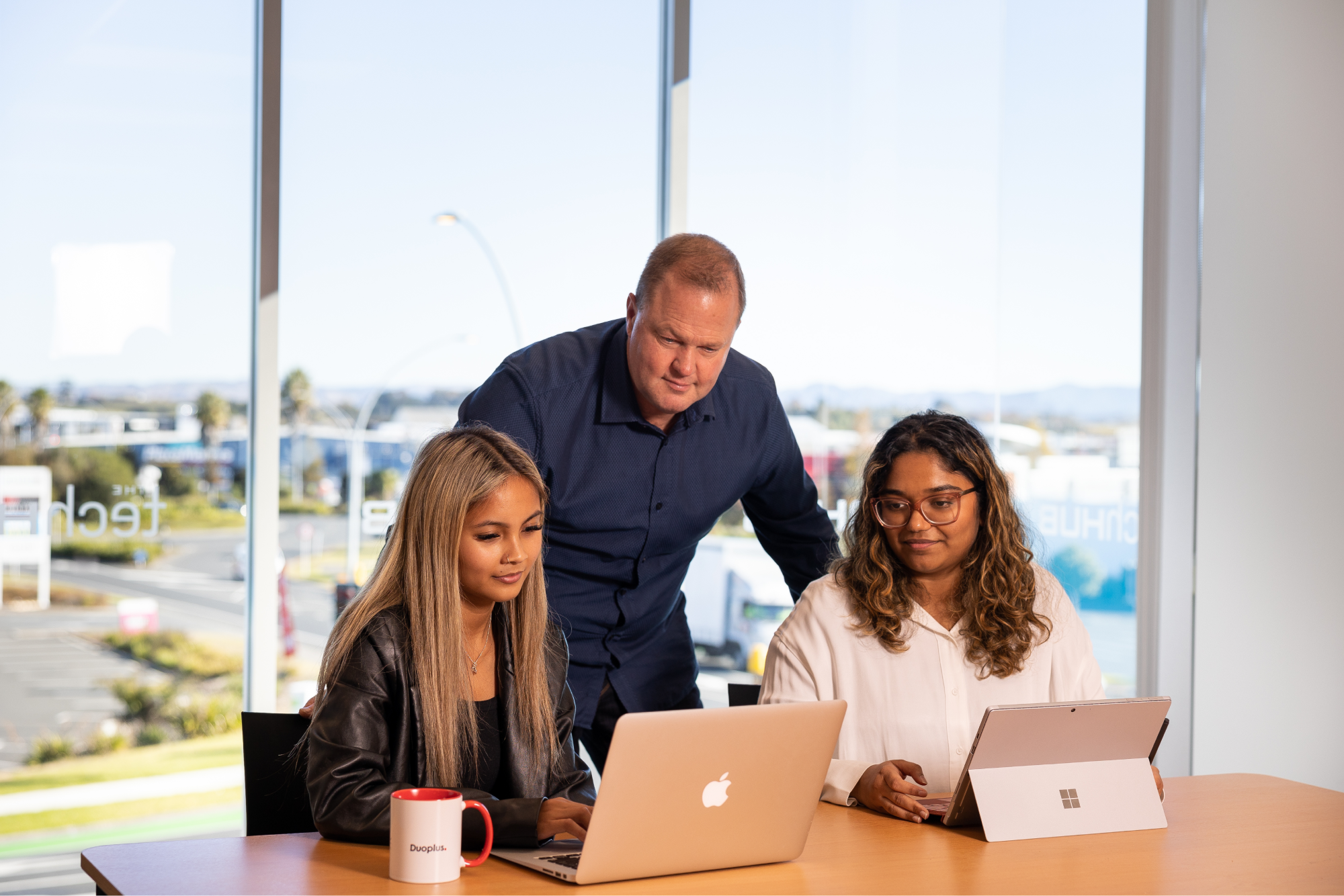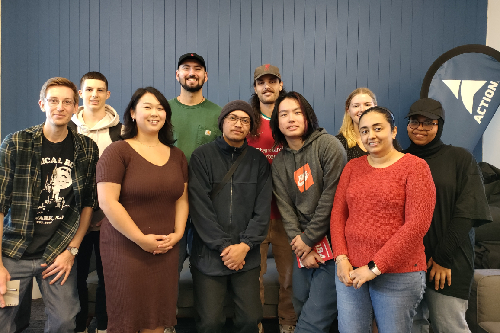Partner with Waikato WIL
Partner with the University thorough the Work-Integrated Learning (WIL) programme and host talented students, gain fresh perspectives, and boost your organisation's innovation and growth.
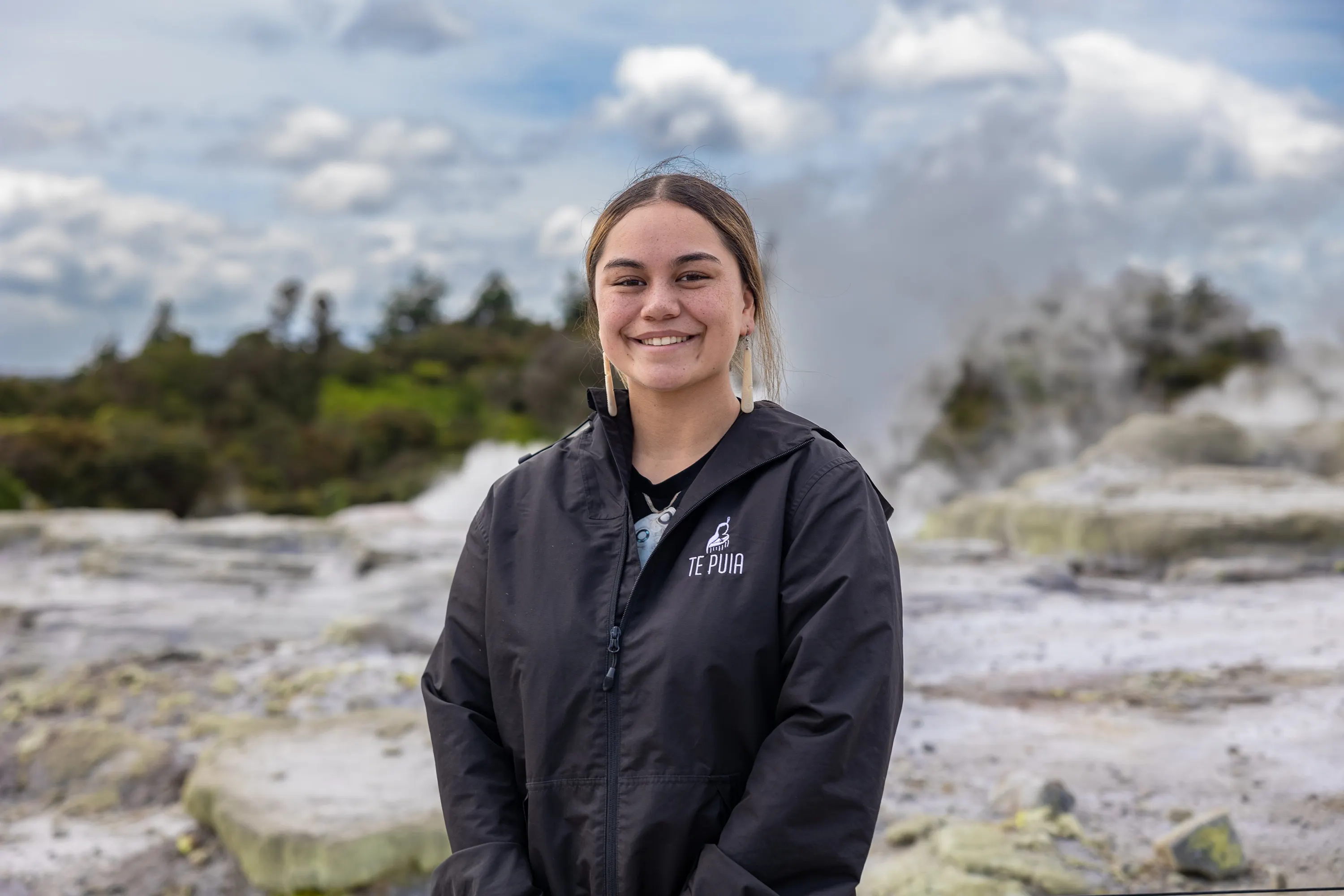
Partnering with our WIL programme offers organisations fresh perspectives, extra support, and a unique opportunity to preview potential future recruits, fostering growth in your business.
Students in our WIL programme apply essential professional skills in real-world projects and placements, demonstrating their knowledge to employers and preparing them for the future workforce. WIL is a compulsory component of all University of Waikato undergraduate degrees.
Partner with tomorrow's talent
The University of Waikato is committed to producing graduates who are not only academically strong but also equipped with the practical skills and real-world experience to make an immediate impact in the workforce. Our Work-Integrated Learning program is a cornerstone of this commitment, providing a vital link between academic learning and practical application in industry and community settings.
Unlock innovation, gain fresh perspectives, and connect with future leaders by partnering with the University of Waikato's Work-Integrated Learning (WIL) programme.
Benefits of partnering with WIL
- Access to fresh talent
Host motivated and bright students who can bring new perspectives, innovative ideas, and a willingness to contribute to your projects. - Address resource needs
Gain an extra pair of hands to help with ongoing projects, tackle tasks that have been on the back burner, or explore new initiatives with a low-risk investment. - Future recruitment pipeline
WIL offers a fantastic opportunity to "try before you buy" when it comes to recruitment. You can assess a student's skills and cultural fit within your organization, potentially fast-tracking your future hiring process. - Enhance diversity and inclusion
Welcome students from diverse backgrounds, enriching your workplace and gaining new insights. - Foster innovation
Collaborate with our academic staff and students to explore new ideas and potentially influence future research and innovation within your industry. - Community engagement
Contribute to the development of the future workforce and play a direct role in the education of the next generation of professionals. - Access to university expertise
Develop a working relationship with the University of Waikato, potentially opening doors to further collaboration, research partnerships, and access to specialised university resources.
Work Integrated Learning models
- Work placements
Host a student for a defined period (typically aligning with university trimesters, which generally start in March, July, and November and run for 14 weeks, though some flexibility in start dates may be possible). Students are embedded within your organisation, undertaking genuine tasks or specific projects relevant to their field of study. - Work-related projects
Collaborate with our students on a specific project managed primarily within the university classroom. You provide the real-world problems or challenges, and students work individually or in groups to develop solutions and deliver outcomes, with input from you and your team throughout the process.
Partner with the University of Waikato
We are always seeking new partnerships with businesses and community organisations. If you are interested in learning more about how Work-Integrated Learning can benefit you, or to discuss potential collaboration opportunities, we encourage you to:
- Express your interest as an organisation to host a WIL student
- Contact us directly on wilcu@waikato.ac.nz
We look forward to the possibility of partnering with you to create a win-win experience for both your business and our talented students.
Work placement
Manaia Lewis-Wano's work integrated learning experience at Te Puia.
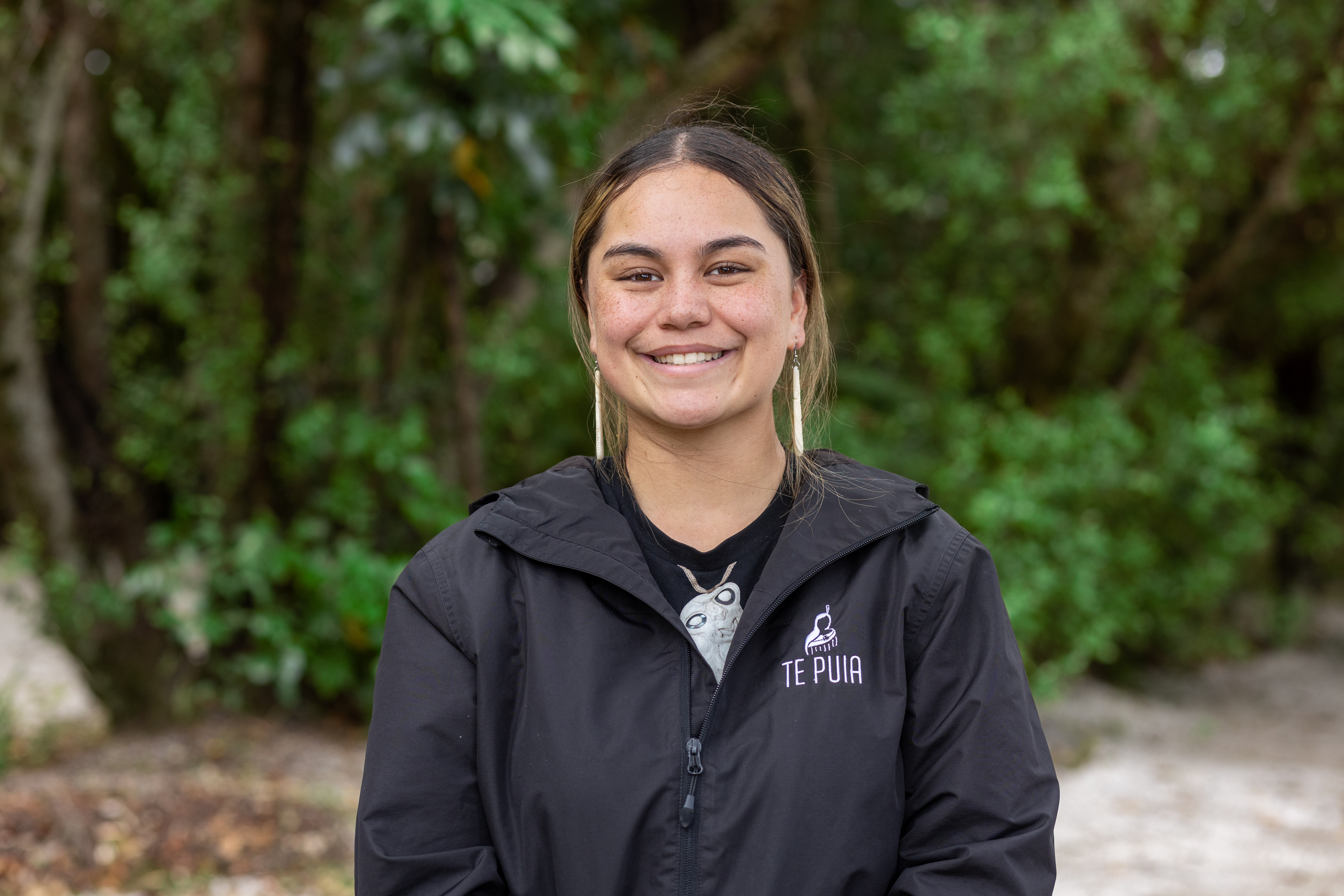
FAQs from industry and community organisations
Work-integrated learning is practical experience which gives students the opportunity to apply theoretical knowledge learnt in the classroom therefore most student will undertake WIL in their third year. This is because third year students have had the opportunity to develop more of that knowledge therefore the experience is more meaningful.
We encourage you to speak to our WIL team to determine the best option for your organisation to make the most out of working with our students. Please complete the request a call back form or log a project and someone will be in touch within 2 days.
We expect that the partner organisation will allocate a work place supervisor who is responsible for the day to day oversight of the student. Often the workplace supervisor will be required to complete an evaluation of the student, either during or at the end of the placement.
This can vary depending on the paper and the work that is required. Placements can range between 60 and 400 hours in the workplace, while work-related projects may only require email communication with the partner organisation.
The University is relatively flexible on the time that students spend in the workplace – however if the placement is undertaken during the trimester then care needs to be taken to not interfere with the students other academic commitments.
There is no university requirement for students to be paid while they are on placement or for undertaking a work-related project. However for some programmes particularly where placements occur over the summer, payment of students is the norm.
There may also be the opportunity to obtain financial support via scholarships and research grants. See below for examples of financial support opportunities. Please get in touch if you would like to know more.
There is a confidentiality clause in the Student Placement Agreement provided by the University of Waikato. Students and staff are expected to uphold organisational confidentiality at all times.
However students are also expected to submit work relating to their placement or project, the University does have in place processes where organisations can request that student’s assessment items be examined under conditions of confidentiality. We expect that no other restriction will be placed on the student’s ability to lodge their assessment items.
Where students are not receiving remuneration for the work that they are undertaking it is important to consider the IP rights of the students. The University has a standing policy that any intellectual property created by a student belongs to that student however we anticipate that in the course of undertaking WIL there will be potential IP generation which should remain property of your organisation.
You can ask the student to sign this over to you, however there must be no restrictions placed on the students to log their assessments.
We also ask that you consider that some students are required to present a portfolio of work when they are applying for positions in their relevant industry. This means that imposing minimal restrictions on work that they produce is important for the development of your future industry professionals.
The simple answer is no, your organisation is not too small. New Zealand is a country made up of small organisations and many of these need fast, low risk solutions to problems that arise. Alternatively you may simply need help to undertake specific projects or tasks.
There will be some form of supervision required, this will vary depending on the type of WIL that is undertaken. For example a project may require email communication and occasional meetings, while a placement may require day to day supervision. Prior to the student commencing a placement or project, the WIL contact will work with you to determine the expectations of your organisation including supervision and the agreed outputs.
The University has processes in place for when things don’t quite go to plan. The first point of contact for your organisation will be the WIL contact who would have been identified to you on the WIL Expectations document that was signed at the start of the placement. If you are engaging in a work-related project it is recommended that you speak with the WIL contact or the Academic staff member that is overseeing the project on campus.
Alternatively you are able to contact our Central WIL team directly, via email at wilcu@waikato.ac.nz
It is up to you to determine how you want to manage this process, the university can either:
- Select the student on your behalf,
- Short list students for your final selection, or
- Send all applicants to you for selection.
You can let us know which option is most suitable for you when you complete the WIL expression of interest form.
